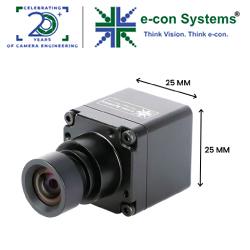Toshiba Launches a High Speed, Dual Polarity Input Photocoupler for Servo Motors and PLCs
Works with both plus and minus LED currents
TOKYO--Toshiba Corporation (TOKYO:6502) today announced that it has launched "TLP2391", a high-speed photocoupler for servo motors and programmable logic controllers (PLCs) which works with both plus and minus LED currents. Mass production is scheduled to start in December.
PLC applications accept one of two different polarity inputs: sink logic input and source logic input. The "TLP2391" supports both sink and source logic by combining two LEDs in inverse parallel, eliminating the need for a bridge circuit. The product supports 10Mbps high speed communications, twice as fast as other Toshiba dual input photocouplers1 allowing use in communications interfaces in industrial applications. The IC's 2.3mA low input current drive (@ VCC = 3.3V) and 1mA low supply current contribute to energy efficiency.
Applications
Programmable logic controllers (PLC), servo motors, and industrial automation equipment
Key Features of New Product
• Operating temperature: Topr = -40 to 125°C
• Supply voltage: VCC = 2.7 to 5.5V
• Supply current: ICC = 1mA
• Threshold input current:
IFHL = 2.3mA (VCC = 3.3V)
IFHL = 2.5mA (VCC = 5.0V)
• Propagation delay time: tpHL / tpLH = 100ns (max)
• Pulse width distortion: |tpHL-tpLH| = 30ns (max)
• Propagation delay skew: tpsk = 40ns (max)
Note:
[1]: Comparison with 5Mbps speed of Toshiba dual input photocouplers, "TLP2395" and "TLP2398".
For more information about the product, please visit:
http://www.semicon.toshiba.co.jp/info/lookup.jsp?pid=TLP2391&lang=en
Featured Product

3MP HDR IP69K Camera for Robotics & Autonomous Vehicles
STURDeCAM31 from e-con Systems® is designed to make robotics and autonomous vehicles safer and more reliable. Powered by the Sony® ISX031 sensor and featuring GMSL2 interface, this compact 3MP camera delivers 120dB HDR + LFM imaging with zero motion blur — even in the most challenging outdoor conditions. Engineered to automotive-grade standards, STURDeCAM31 is IP69K certified, making it resistant to dust, water, vibration, and extreme temperatures. With support for up to 8 synchronized cameras, it enables powerful surround-view and bird's eye systems on NVIDIA® Jetson AGX Orin™.
